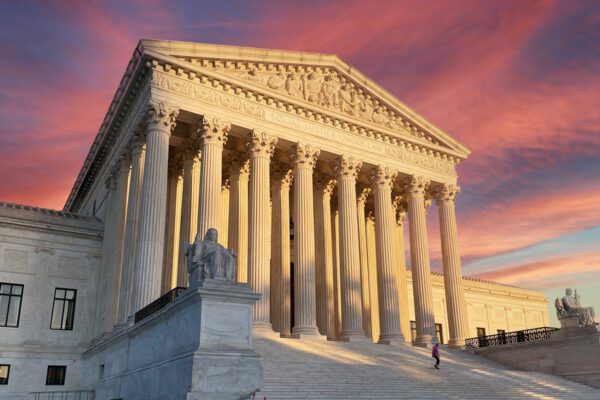Highlights
- April 23, 2024: The FTC voted to issue a final rule that would ban noncompete agreements in virtually all employment relationships. The final rule would invalidate almost all existing noncompete agreements (other than those entered into with senior executives) as well as virtually all future noncompete agreements.
- April 24, 2024: The U.S. Chamber of Commerce filed a lawsuit seeking to block the final rule.
The Federal Trade Commission (FTC) voted on April 23, 2024, to announce a final rule that would ban noncompete agreements in virtually all employment relationships.
The final rule has not yet been filed in the Federal Register but is scheduled to take effect 120 days after such filing.
Final Rule
The final rule defines a noncompete clause as a term or condition of employment that prohibits a worker from, penalizes a worker for or functions to prevent a worker from:
- Seeking or accepting work in the United States with a different person where such work would begin after the conclusion of the employment that includes the term or condition; or
- Operating a business in the United States after the conclusion of the employment that includes the term or condition. Such terms or conditions include employee contracts or workplace policies, whether written or oral.
Subject to very limited exceptions, the final rule provides that:
- The use of noncompete clauses will be banned as of the effective date;
- Any existing noncompete clauses (other than those entered into with senior executives) will be invalidated;
- Employers must notify all employees (other than senior executives whose existing noncompete agreements will remain enforceable) that their existing noncompete agreements will not be enforced.
Currently, the enforceability of noncompete clauses is determined by state and local legislatures and courts. The FTC rule would instead govern the enforceability of noncompete clauses at the federal level and supersede any less restrictive state laws or judicial interpretations.
Legal Challenges
On April 24, 2024, the U.S. Chamber of Commerce sued the FTC, seeking to block the final rule. The complaint was filed in the U.S. District Court for the Eastern District of Texas and argues that the FTC lacks the authority to issue rules that define unfair methods of competition. Additional legal challenges are likely, so employers should monitor for updates and anticipate potential uncertainty in the coming months.
Next Steps for Employers
Employers may consider reviewing existing employee agreements or form agreements (such as new hire paperwork) to determine whether any contain noncompete clauses that would be invalidated under the rule. Employers may also begin preparing revisions to such agreements and consider whether to use alternatives to noncompete clauses (e.g., nondisclosure clauses) to protect competitive business information.
Material posted on this website is for informational purposes only and does not constitute a legal opinion or medical advice. Contact your legal representative or medical professional for information specific to your legal or medical needs.



